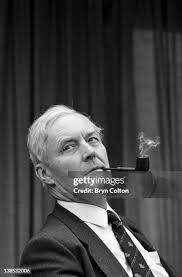The Enduring Legacy of Tony Benn in British Politics

Introduction
Tony Benn, a significant figure in British politics, remains a towering presence in the landscape of social democracy and left-wing activism. Known for his uncompromising stance on various issues, Benn’s legacy continues to resonate, shaping contemporary political discussions in the UK. His advocacy for civil liberties, social justice, and grassroots democracy is particularly relevant in today’s turbulent political climate.
Key Contributions
Born in 1925, Tony Benn’s political journey spanned over six decades, during which he served as a Labour MP and held high-profile cabinet positions. He was known for his passionate speeches and controversial views, often challenging the status quo. As Minister of Technology from 1964 to 1966, Benn played a pivotal role in promoting technological advancements and state intervention in the economy.
One of his most notable contributions was the establishment of the National Enterprise Board in 1975, aimed at revitalising British industry through public investment. He championed the cause of public ownership and opposed the privatisation trends that emerged in the 1980s, arguing that essential services should remain in public hands for the greater good.
Benn’s Philosophy of Politics
Benn was not only a politician but also a philosopher of politics. He encouraged a participatory model of democracy where ordinary people had a direct say in the power structures that govern them. His concept of ‘radicalism’ conveyed a vision for a democratic, socialist society aimed at reducing inequality and empowering the underrepresented.
Contemporary Relevance
The current political landscape in the UK, marred by division and populism, has seen a resurgence of interest in Benn’s ideologies. Many younger political activists are invoking his principles to push back against austerity measures and corporate influence in politics. Labour leader Keir Starmer, despite navigating a centrist path, often quotes Benn’s ideologies to emphasise the importance of community solidarity and social justice.
Conclusion
As we reflect on Tony Benn’s life and work, it is clear that his principles still hold significant weight in today’s political discourse. His commitment to challenging injustice and advocating for the rights of the forgotten remains a beacon for many. While the political movements may evolve, the essence of Benn’s message—empowering the people and striving for a fairer society—continues to inspire new generations. As we look to the future, Benn’s legacy will undoubtedly influence the ongoing fight for social democracy and meaningful change in the UK.









